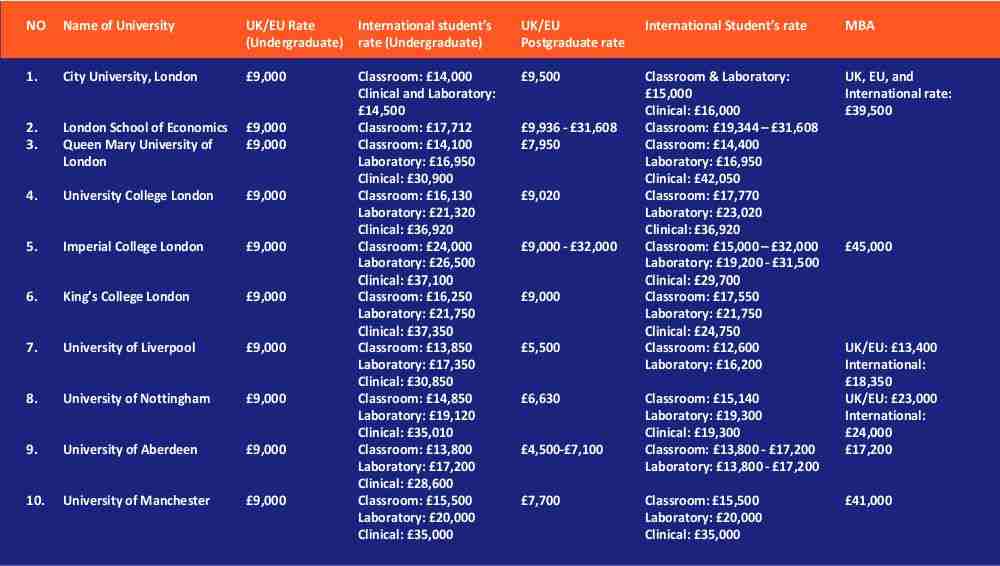UK fees go up

Afterschool Team
August 23, 2016
EU students now will be charged as much as international students in the UK. However, the increase in tuition fees is now official and there seems to be some serious considerations to subject EU students to the same standards as other international students. This begs the question is it really worthy to study in the UK with the confirmation of increasing fees?
In 2012, the tuition fees cap was pushed to £9,000. At the time, this move brought the value of an undergraduate degree from an English university under scrutiny as people started to question if it was worth the money, given the troubling economy of many countries around the world, including the UK.
However, after the UK's vote to leave the EU, a series of unprecedented measures and actions have been taken by the newly appointed government. One of these measures was increasing the cap on tuition fees and allowing universities to increase the prices to more than £13,000 a year, and more than £24,000 a year for medical and clinical studies for international students.
This affects citizens and students of the UK where the price is above £9,000 students from the EU, and non-EU students. For UK students, this means higher study loans, longer duration of payments, uncertainty in terms of employment opportunities, effects on credit scores and overall, an unpredictable future for the UK. Adding to the trouble, the UK is facing a shortage of talent and a fewer number of 18 year olds. Even UK students are hesitant to enrol in a UK institution.
According to the explanation provided by David Palfreyman, director of the Oxford Centre for Higher Education Policy Studies and co-author of The Law of Higher Education, it is clear that EU students have been treated in a rather special manner. They received certain advantages over other international students, especially in terms of fees and loans. Non-EU students have been paying significantly higher fees and cannot apply for study loans. However, after the UK effectively leaves the EU, all of these advantages could leave with it, putting EU students at the same standard as other international students. However, the terms are still uncertain until the triggering of Article 50 (the EU treaty mechanism by which countries can exit the bloc).
At this point of time, EU undergraduate students will continue to pay the UK rate of fees, which is now around £9,250. International students tuition fee rate, on the other hand, is at £13,394. It is worth noting that international student fees have significantly increased since 2013 and is expected to increase with every passing year. Additionally, the average fee for international students in laboratory subjects now stands at £15,034, while for clinical disciplines, it is at £24,169. The gap in tuition fees between UK students and international students is unquestionably large.
Postgraduate level, on the other hand, may have experienced a narrower gap, but it is still more than 100% higher for international students. While UK students pay an average of £6,486, international students pay £13,442. International students at postgraduate level are charged even higher; for laboratory subjects £15,638 and medical related studies £20,956.
The question at this point remains: will EU students be subjected to the same standards as other international students in terms of visa regulation and immigration policies?
Some specialists in the education sector in the UK are optimistic about their ability to recruit international students from the EU and non-EU countries, citing the dropping price of the pound as a point of attraction. However, observers from other sectors aren't very optimistic due to the following reasons:
- Many countries in the EU have free tuitions and quality of education that can compete with UK universities
- Increasing tuitions fees isn't an attractive strategy to recruit more international students
While the pound drops, it is still higher than currencies in countries like China, India, South Korea, Malaysia and other nations (even the Euro) where international students from these countries form the highest numbers in the UK.
New visa regulations, no work while studying and having to leave the UK as soon as the degree is over aren't so inviting for international students.
A snap shot of the latest tuition fees from 10 universities selected based on the availability of Malaysian students:





